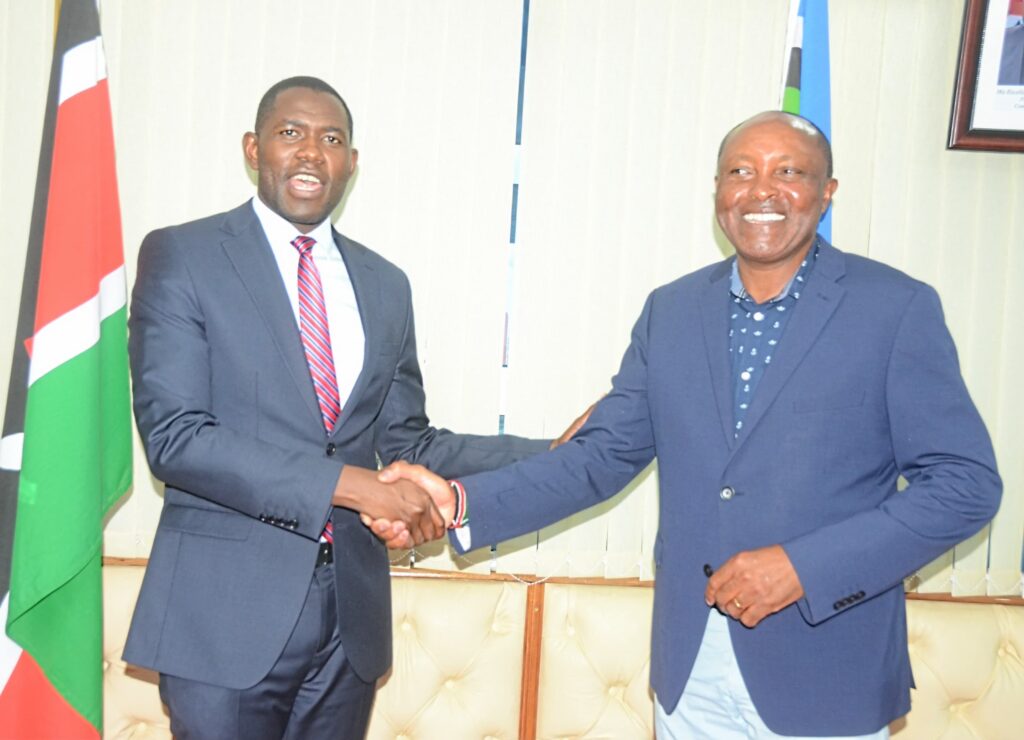Kenya’s Ministry of Health (MoH) has teamed up with the Clinton Health Access Initiative (CHAI) to address significant funding gaps in HIV and tuberculosis (TB) services. This collaboration follows the announcement of a stop-work order on U.S. Government funding, which has left a gap in financing for these essential health services. The discussions between Dr. Ouma Oluga, the Principal Secretary for Medical Services, and Dr. Gerald Macharia, the Global Director of CHAI, have centered on identifying sustainable solutions to bridge these gaps and build a more resilient healthcare system.
CHAI, known for its global health initiatives, has outlined its support for Kenya’s health sector, focusing on resource mapping at the Ministry of Health. This exercise aims to enhance the coordination of health resources, ensuring that funds are allocated where they are most needed. Through this partnership, CHAI has secured additional funding for 12 months to address both immediate and long-term challenges resulting from the funding cuts. The funding will prioritize interventions that the Ministry of Health has already identified after conducting an analysis of the impacts of the financial shortfall.
The immediate objective of this partnership is to fill the funding void while working towards a stronger, more sustainable, and domestically-driven health system. This involves leveraging alternative financing mechanisms and optimizing the current resources available. The partnership emphasizes the importance of reforming the health system to increase efficiency, ensuring that healthcare delivery is sustainable over time. Central to these efforts is the institutionalization of resource tracking, which will enable better planning and continuity of services, even in the face of funding fluctuations.
Another important aspect of the collaboration is CHAI’s commitment to exploring non-traditional funding options. This includes fostering public-private partnerships (PPPs) as a means of boosting financial resources for the health sector. Public-private collaborations have the potential to bring in private sector investments and expertise, thereby increasing the capacity to deliver essential health services to vulnerable populations. By integrating services more efficiently and optimizing resource allocation through improved data analytics, the partnership aims to enhance service delivery. This approach ensures that available funds are directed toward high-impact areas, such as HIV and TB services, which are vital to public health in Kenya.
In addition to exploring innovative funding strategies, CHAI and the Ministry of Health aim to strengthen data analytics within the health sector. Better data management will facilitate the allocation of resources to the most pressing needs, ensuring that the available funding is used effectively. Through improved data analytics, Kenya will be able to better assess and respond to health challenges in real-time, improving the overall impact of health programs.
The partnership also emphasizes the importance of continuous engagement between stakeholders, donors, and implementing partners. This ongoing dialogue is crucial for ensuring that there is alignment across the health sector, maximizing the efficiency of resources, and ensuring that all parties involved are working towards shared goals. It is expected that this collaboration will foster a more cohesive and responsive health system that is better equipped to handle the challenges posed by funding shortfalls.
The efforts of CHAI and the Ministry of Health represent a proactive step towards addressing the immediate gaps caused by the funding cuts. At the same time, they are working to lay the foundation for a more resilient health system, one that is better prepared to face future challenges while continuing to provide essential services to Kenya’s population.

